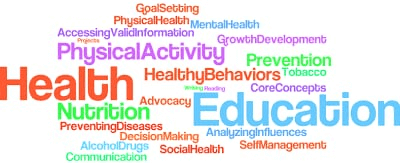Sexual health is an essential aspect of our overall well-being. It encompasses not just the physical aspects of sexuality but also the emotional, psychological, and relational factors that play a crucial role in healthy sexual experiences.
Sexual health is not just about the absence of disease or dysfunction—it is about a positive and respectful approach to sexuality, relationships, and reproduction. According to the World Health Organization (WHO), sexual health requires a positive and respectful approach to sexuality and sexual relationships, as well as the ability to have pleasurable and safe sexual experiences. To truly understand sexual health, it is important to consider the five key components that shape it.
1. Physical Health
The foundation of sexual health lies in the bodys physical condition. This includes the proper functioning of sexual organs, a lack of sexually transmitted infections (STIs), and an awareness of sexual anatomy. Regular check-ups and screenings for STIs, reproductive health issues, and cancers (like cervical or testicular cancer) are vital for maintaining physical sexual health. Contraception, safe sex practices, and the management of sexual dysfunction also fall under this category.
Maintaining a healthy body through diet, exercise, and regular medical care contributes to better sexual health and performance. Furthermore, hormonal health, fertility, and the physical ability to experience sexual pleasure all play into this component.
2. Emotional and Psychological Health
Sexual health is deeply linked to emotional and psychological well-being. A person self-esteem, body image, and mental health all influence their sexual experiences. Negative feelings such as anxiety, stress, or guilt can affect sexual desire, performance, and satisfaction.
Emotional health in sexual contexts also relates to comfort with one sexual identity, orientation, and behaviors. Being in tune with one sexual needs and desires, understanding boundaries, and feeling emotionally secure within sexual relationships are all key to sexual well-being. People struggling with mental health issues like depression, anxiety, or trauma (especially from sexual abuse) may find it difficult to engage in healthy sexual relationships without proper support.
3. Social and Relational Health
Sexual health also thrives within the context of relationships. Healthy relationships require communication, mutual respect, and trust. This involves both partners being comfortable discussing their sexual needs, desires, and boundaries. The dynamics of power, equality, and consent are key factors in ensuring that both individuals feel safe and respected.
Consent plays a particularly important role in sexual relationships, emphasizing the importance of mutual agreement, respect for boundaries, and a shared sense of responsibility. Understanding and addressing the dynamics within romantic and sexual partnerships helps ensure that the relationships are healthy and fulfilling.
4. Cultural and Ethical Factors
Sexual health is influenced by cultural beliefs, religious values, and societal norms. Different cultures have varying views on sexuality, gender roles, and acceptable sexual behaviors. These cultural and ethical perspectives shape how individuals perceive and express their sexuality.
It is important to recognize how cultural attitudes toward sexual orientation, reproductive rights, and gender identity can impact a person sexual health. Ethical considerations like respect for others, consent, and equity are also key. Understanding and navigating these cultural and ethical factors help people establish healthy sexual practices that align with both personal and societal values.
5. Educational and Informational Awareness
Knowledge is power, and access to accurate, evidence-based sexual health education is a fundamental part of maintaining sexual health. Being informed about topics such as contraception, STIs, sexual consent, reproductive rights, and safe sex practices allows individuals to make empowered decisions about their sexual health.
Comprehensive sexual education enables people to understand their bodies, communicate with partners, and engage in safe sexual activities. It also helps individuals recognize their sexual rights and responsibilities, making them more equipped to make decisions that protect their well-being and the well-being of others.
Conclusion
Sexual health is a multi-dimensional aspect of life that goes far beyond physical well-being. It involves a blend of emotional, relational, cultural, and educational factors. Addressing all five components—physical health, emotional well-being, social relationships, cultural factors, and sexual education—leads to a more fulfilling and healthy sexual life. Achieving balance and positive experiences in all these areas is key to overall sexual well-being.







Comments
Leave a comment